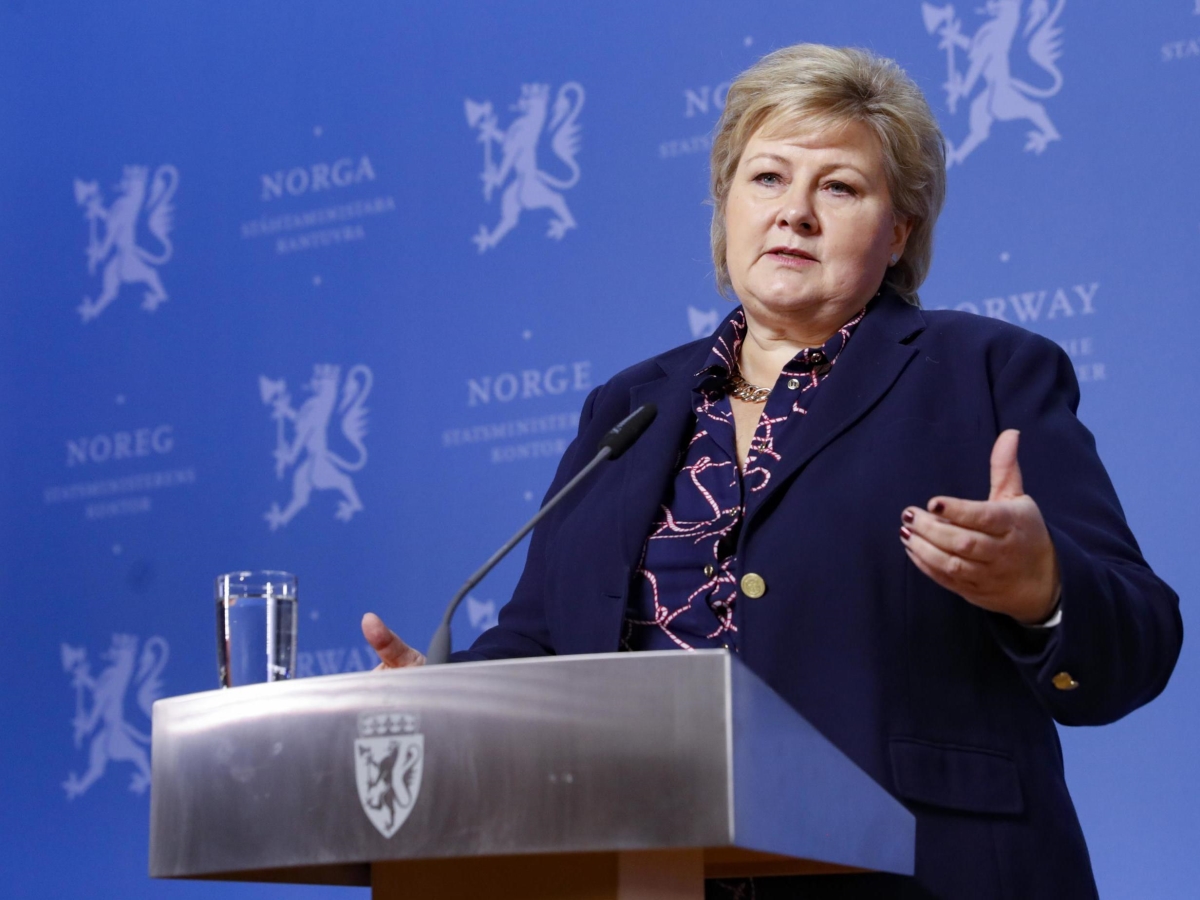- ASRY Awarded 2024 RoSPA Gold Medal in Health and Safety
- BP ponders shifting focus away from renewables, say sources
- QatarEnergy enters 10-year naphtha supply agreement with Japan’s ENEOS Corporation
- The International Energy Agency expects oil demand growth to slow in 2024
- The International Monetary Fund re-selects Kristalina Georgieva as its director
- Libya to target producing 1.4 million b/d by end 2024
- TotalEnergies launches the Marsa LNG project and deploys it multi-energy strategy in Oman
- H.E. Minister Al-Kaabi: Demand for oil and gas will continue for long; we have to be responsible, and Qatar is doing its part
- Egypt to stop exporting LNG starting from the beginning of May 2024
- QatarEnergy selects Nakilat to own and operate 25 conventional LNG vessels

Norway: Prime Minister says her country continues to depend on oil and gas

Despite the heated debate over the future of the fossil fuel industry, Norway’s prime minister Erna Solberg says her country will continue to explore for oil and gas.
Erna Solberg, who has been in power in Norway since 2013, said the country’s oil production is slowing, but she refuses to support the International Energy Agency’s efforts to halt all new oil projects to keep climate change under control.
The Prime Minister insists that there is a continuing need for Norwegian oil and gas, along with hydrogen production. The dependence of Norway, the largest oil producer in Western Europe, on oil and gas is likely to be a hot topic in the national elections scheduled for 13 of September 2021.
It is worth noting that the Norwegian economy depends mainly on oil and gas, and investments in oil and gas are large compared to what invests in other sectors. As a result, Norway’s non-oil trade deficit has steadily widened over the last decade.
Norway’s industrial structure and investments are closely linked to the hydrocarbon industries (oil and gas), with hydrocarbon exports accounting for nearly 40% of total exports.
However, domestic energy there comes almost entirely from renewable sources (hydroelectricity). Thus, the Norwegian economy is ready and prepared for the industrial transformation towards more clean energy.
Norway now needs long-term financing to support economic diversification, phase out dependence on oil extraction, and move toward green energy. It is inevitable that Norway will direct the resources of its sovereign wealth fund towards a green transition.










